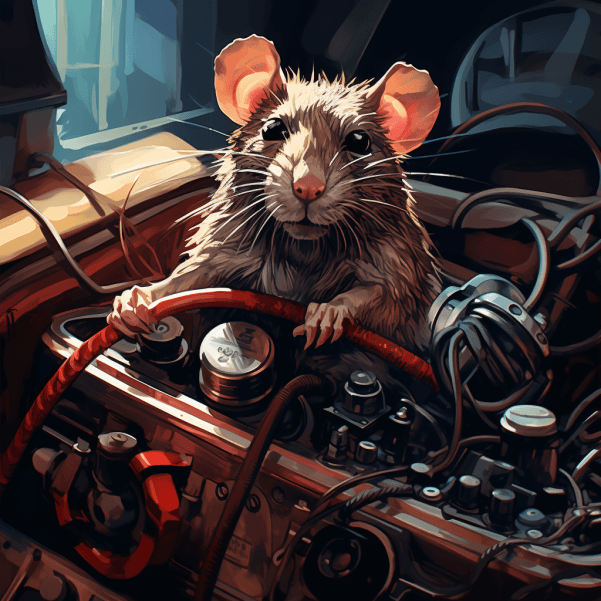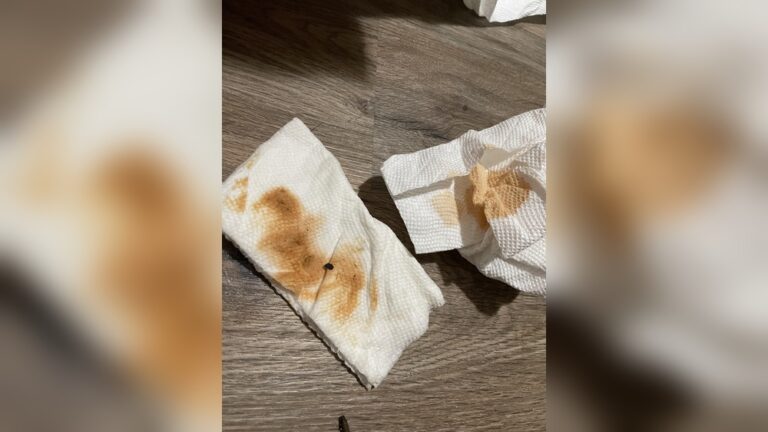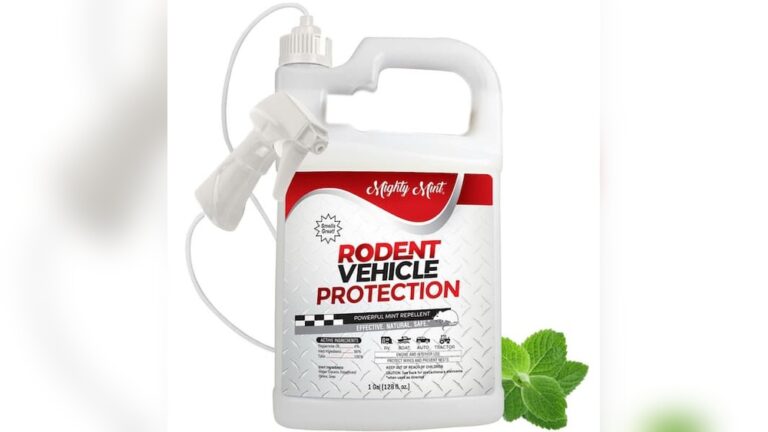Prevent Rodents From Eating Car Wires: Effective Tips That Work
Imagine waking up to find your car won’t start because tiny rodents have chewed through your wires. It’s a frustrating and costly problem that can happen to anyone.
But what if you could stop these pests before they cause damage? You’ll discover simple and effective ways to protect your car’s wiring from hungry rodents. Keep reading to learn how to save yourself time, money, and stress by preventing this common issue.
Your car deserves the best care—and you deserve peace of mind.

Credit: www.youtube.com
Why Rodents Target Car Wires
Rodents often cause serious damage to car wires. They chew through wires, leading to costly repairs. Understanding why rodents target car wires helps prevent this problem. Their behavior and attraction to certain materials explain this issue.
Attraction To Materials
Rodents like to chew on soft, flexible materials. Car wires are coated with plastic or rubber, which rodents find easy to gnaw. The smell of insulation or plastic may attract them too. Some wires may also have traces of food or oil, increasing their appeal. This makes car wires a prime target for rodents.
Common Rodent Behavior Around Vehicles
Rodents often hide in warm, dark places. Cars parked in quiet spots provide a perfect shelter. They build nests using soft materials, including wire insulation. Rodents also leave behind droppings and chew marks near cars. Their constant gnawing helps keep their teeth sharp and healthy.
Signs Of Rodent Damage In Cars
Rodents chewing car wires cause serious damage. Detecting signs early helps prevent costly repairs. Watch closely for common clues that indicate rodent activity.
Visible Wire Chewing
Look under the hood for gnawed wires. Exposed metal wires may appear frayed or bitten. Rodents often target rubber and plastic coverings. Damaged insulation can cause short circuits in your car.
Unusual Car Malfunctions
Strange electrical problems might signal rodent damage. Your car may fail to start or have flickering lights. Malfunctioning power windows or alarms also indicate wire issues. These problems often worsen over time.
Droppings And Nesting Evidence
Rodent droppings near the engine or tires are a clear sign. Look for shredded materials inside the engine bay or wheel wells. Nesting debris like leaves or paper means rodents live nearby. These signs show a risk of ongoing wire damage.
Preventive Measures To Protect Car Wires
Preventing rodents from chewing car wires is essential to avoid costly repairs. Taking simple steps can protect your vehicle and keep it running smoothly. These preventive measures help stop damage before it starts.
Regular Vehicle Inspections
Check under the hood often for signs of rodent activity. Look for chew marks on wires and nests. Early detection helps fix problems quickly. Inspect the engine area and wheel wells regularly. Catching damage early saves money and time.
Proper Parking Strategies
Park in well-lit, open areas to deter rodents. Avoid parking near trash or wooded areas. Garages offer better protection against pests. Keep the parking space clean and free of food scraps. These steps reduce the chance of rodents nesting near your car.
Rodent Repellent Options
Use natural repellents like peppermint oil or mothballs near the engine. Ultrasonic devices can scare rodents away without chemicals. Commercial rodent repellents are also available for vehicles. Applying these helps keep pests at a distance.

Credit: malumltd.co.uk
Diy Solutions To Keep Rodents Away
Rodents chewing on car wires can cause serious damage. Using simple DIY methods helps protect your vehicle. These solutions are easy and affordable. They keep rodents away without harmful chemicals. Try these effective ways to stop wire damage.
Natural Repellents And Scents
Rodents dislike certain smells. Peppermint oil, cloves, and garlic work well. Soak cotton balls in these oils and place them near wires. Replace them every few days. The strong scents keep rodents from coming close.
Sprinkle crushed red pepper or cayenne powder around the engine area. Rodents avoid spicy smells. These natural repellents are safe for your car and the environment.
Physical Barriers And Wire Covers
Cover wires with protective sleeves made of metal or plastic. These barriers block rodents from chewing on wires. Use wire loom tubing or spiral wrap for full coverage.
Seal any openings under the hood where rodents can enter. Use steel wool or mesh to close gaps. Physical barriers make it hard for rodents to reach wires.
Ultrasonic Devices
Ultrasonic devices emit high-frequency sounds that rodents dislike. These sounds are silent to humans but keep rodents away. Place devices near the engine compartment for best results.
Use devices that are waterproof and have good battery life. They provide a safe, chemical-free way to protect your car wires from rodents.
Professional Treatments For Rodent Control
Professional treatments for rodent control offer reliable solutions to protect car wires. These treatments focus on removing rodents safely and preventing them from returning. Experts use tools and techniques that are not available to most people. This ensures long-lasting results and peace of mind.
Rodents cause costly damage to vehicles by chewing wires. DIY methods might not fully solve the problem. Professional help targets the root cause and keeps your car safe.
When To Seek Expert Help
Call a professional if you notice repeated rodent damage. Signs include chewed wires, droppings, or strange noises under the hood. If traps and repellents fail, experts can step in. Early action stops damage from getting worse. Professionals also handle rodent infestations safely and cleanly.
Common Professional Methods
Experts use bait stations to lure and remove rodents. These stations control pests without harming pets or people. Ultrasonic devices emit sounds that rodents dislike, driving them away. Professionals seal entry points to block rodent access. They inspect vehicles and nearby areas for nests. Regular monitoring ensures rodents do not return.

Credit: www.howtopreventratsfromeatingcarwires.com
Maintenance Tips To Avoid Future Damage
Preventing rodents from chewing car wires requires ongoing care. Regular maintenance helps protect your vehicle from costly damage. Small steps can make a big difference in keeping pests away.
Routine Cleaning
Clean your engine bay often. Remove food crumbs and debris that attract rodents. Wipe surfaces to eliminate scents that invite pests. Check under the hood for nests or droppings. Keeping the area tidy lowers the chance rodents will settle in.
Storage Tips For Long-term Protection
Store your car in a closed garage when not in use. Avoid parking near woodpiles or trash bins where rodents live. Use rodent repellents or traps around the storage area. Cover your car with a breathable car cover to block access. Proper storage reduces the risk of wire damage over time.
How Smart Pets Lover Can Help You with Prevent Rodents From Eating Car Wires
Learning from Prevention: Turning Rodent Control into Practical Knowledge
Understanding why rodents target car wires and recognizing the signs of damage are more than just safety steps—they offer valuable lessons in observation and proactive care. For pet parents who cherish every wag, purr, and chirp, this approach mirrors the attentive mindset needed to care for their beloved animals. Just as you’d watch for subtle cues of discomfort in your dog or cat, noticing early signs of rodent damage can prevent costly repairs and stress.
Exploring preventive measures and DIY solutions not only safeguards your vehicle but also sharpens problem-solving skills that can be applied to everyday pet care challenges. Maintaining your car with thoughtful routines echoes the consistent attention pets require, reinforcing a lifestyle of responsibility and connection.
- Regularly inspect your car wires as you would check your pet’s health.
- Use natural deterrents safely, much like choosing pet-friendly products at home.
- Consider professional advice when needed, just as you trust vets for your pets.
If you ever need guidance or want to share your experiences, Smart Pets Lover is here to support your journey toward confident, caring stewardship—whether for your pets or your vehicle. Reach out anytime for thoughtful advice tailored to your unique situation.
Frequently Asked Questions
How Do Rodents Damage Car Wires?
Rodents chew car wires to sharpen their teeth. This can cause electrical failures and costly repairs. Protect wires with deterrents or protective covers to avoid damage.
What Are Effective Rodent Repellents For Cars?
Natural repellents like peppermint oil and mothballs work well. Commercial sprays and ultrasonic devices also deter rodents. Regular application is key for lasting protection.
Can Rodents Cause Car Engine Failure?
Yes, rodents chewing wires can disrupt engine functions. This may lead to starting problems or complete engine failure. Early prevention saves expensive repairs.
How To Prevent Rodents From Nesting In Cars?
Keep the area around your car clean and free of food. Use rodent deterrents inside the engine bay. Parking in a garage reduces rodent access.
Conclusion
Protecting your car wires from rodents saves time and money. Use barriers and repellents to keep pests away. Regularly check your vehicle for signs of damage. Keep the area around your car clean and free of food. Small steps can stop big problems from starting.
Stay alert and act fast if you notice any chewing. Your car will run smoother and last longer this way. Prevention is simple and worth the effort. Don’t let rodents cause costly repairs.






